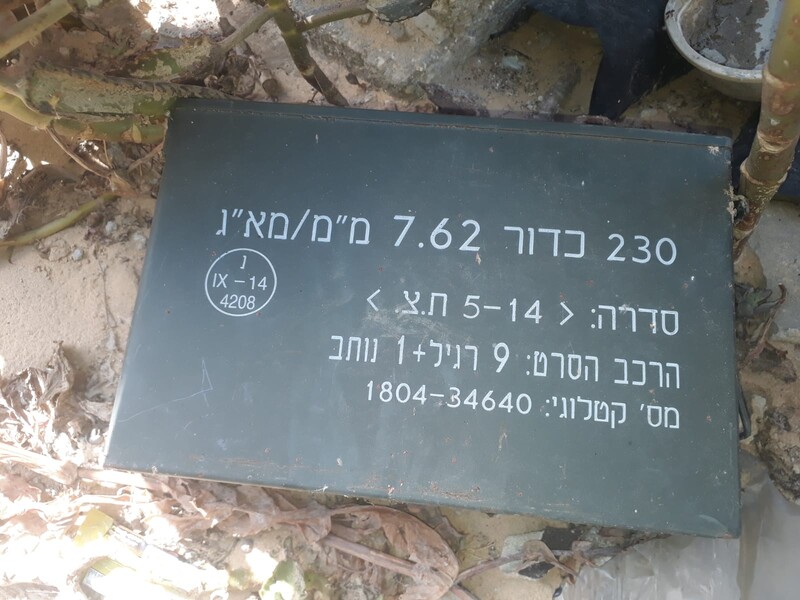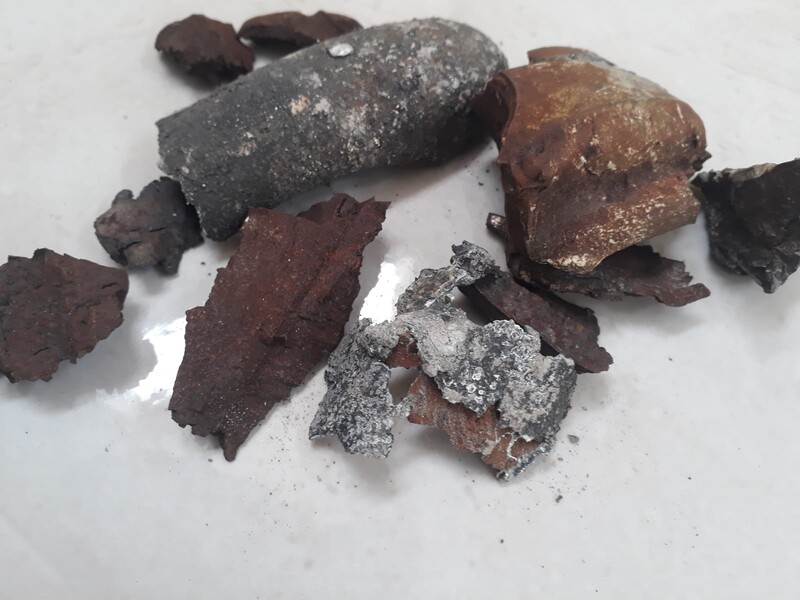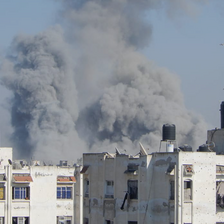The Electronic Intifada 9 May 2024

One of Israel’s “gifts.” (Donya Ahmad Abu Sitta)
After more than 200 days of this genocidal war, we were able to visit our home.
Our visit lasted for 60 hours. Then we had to flee.
It was a homecoming without joy or celebration. The only “gifts” we received were unwanted ones.
Nonetheless, being back in our home – albeit briefly – gave us a sense of purpose after months of living in a tent.
We were fortunate enough to find that our house was one of the few in the neighborhood that had not been destroyed by the Israeli occupation – though it was damaged.
As we inspected our home, we realized that we missed every inch of it.
We stumbled upon some unexpected “gifts” – a tank door, a soldier’s uniform, a food box for the Israeli military, Hebrew writing and fragments of shells.

“Souvenirs” of genocide. (Donya Ahmad Abu Sitta)
These items served as a cruel reminder that even though our house had not been destroyed, it had been invaded.
We had lunch and a rest before beginning the daunting task of cleaning up the rubble and dust.
It soon dawned on us that our efforts were futile in the face of the destruction that surrounded us.
That night, we were unable to sleep.
The constant buzzing of drones filled us with fear.
The next day, we ventured out into the neighborhood and found more “gifts” from the occupation.
The land beside us used to be beautiful and host many olive trees. It was a source of great pleasure at harvest time.
Now it was devoid of trees – as if Israel had declared war on nature itself.
There was a farm for sheep and cows in our neighborhood. On the eve of Eid al-Adha, everyone would gather there to watch the sacrifices.
That farm had now been reduced to a few scattered stones. It was as if Israel had declared a war against animals.
In the streets, we saw children’s toys covered in blood.
The toys seemed to symbolize the end of childhood in Gaza.
When we went back to our home, we once again could not sleep.
The sounds of explosions kept us awake. We knew that something was being destroyed or someone was being killed or injured.
We longed for morning to come so that we could return to Rafah, even though we knew that there was no safe place in the Gaza Strip.
I can’t help but wonder when we will be able to live in the real sense of that word.
Will it only be after we die?
Donya Ahmad Abu Sitta is a writer in Gaza.





